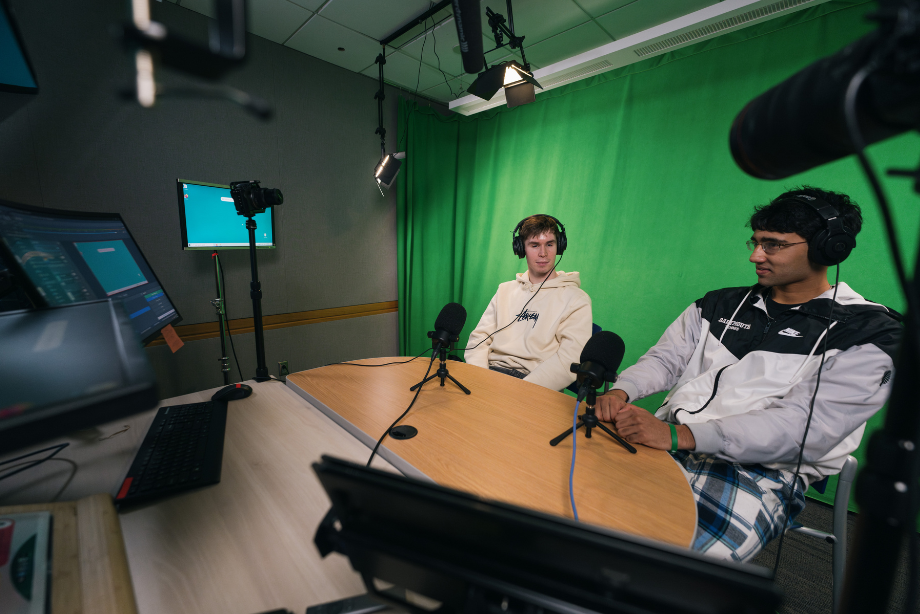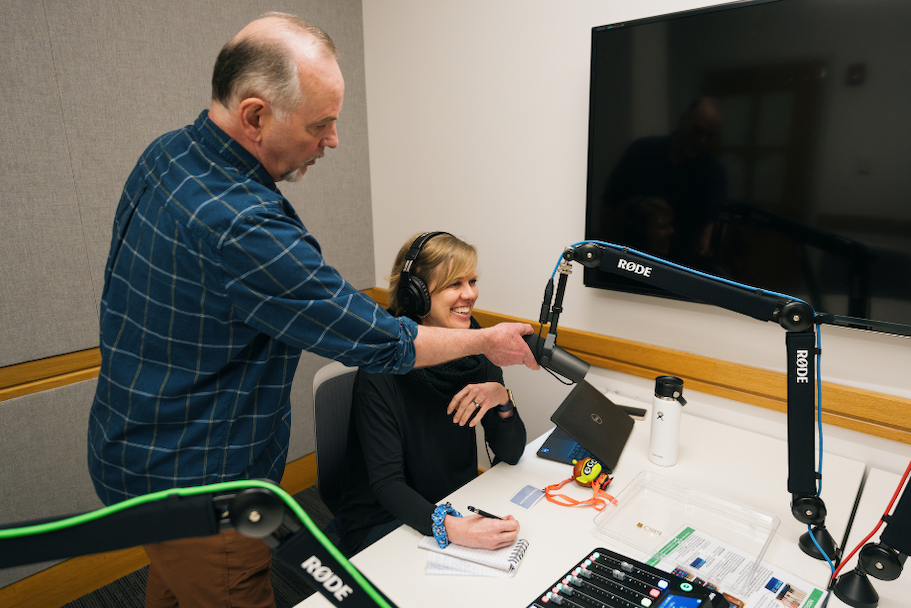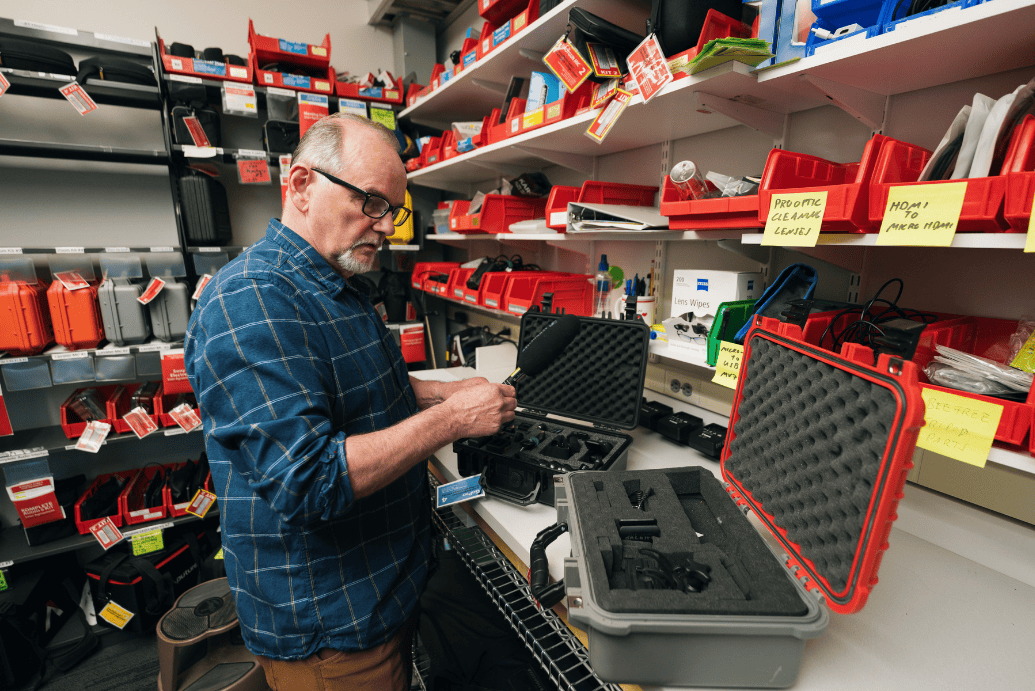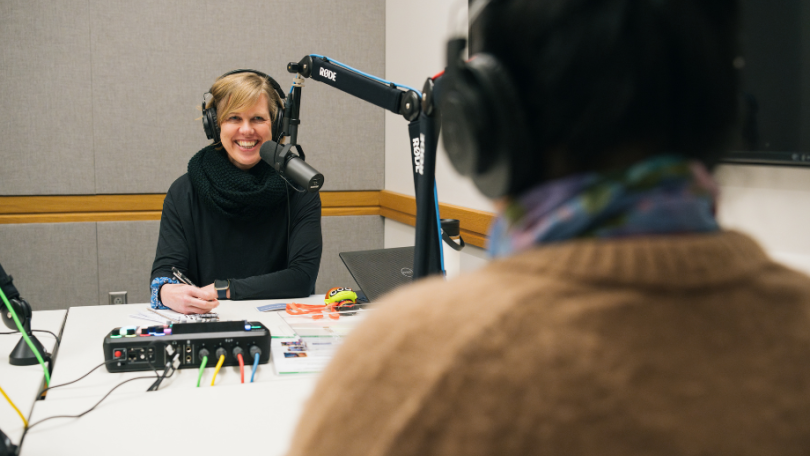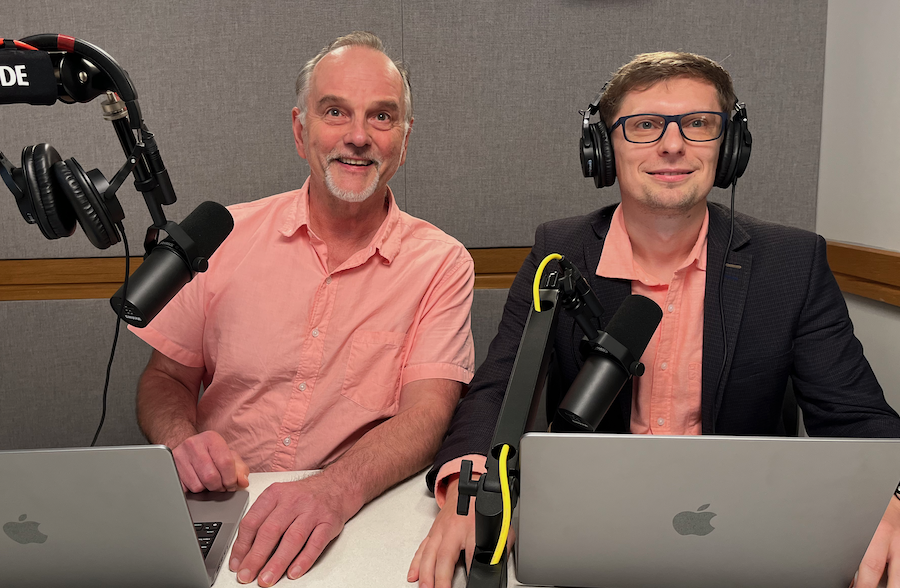
from left, Helmut Baer and Oleg Timoshenko
Elevating Teaching & Learning in the Jones Media Center
If you’ve never used audio or visual equipment in a dedicated studio space, it can be intimidating. But thanks to the team in the Jones Media Center (JMC), whether you’re new to recording or a wizard of the craft, you’ll find the space and equipment you need. That seamless experience is one that Helmut Baer, Creative Learning Spaces and Technology Manager, Jones Media Center, and Oleg Timoshenko, Technical Project Coordinator with Learning Design and Innovation, have strived to ensure since they started collaborating in September 2021.
Oleg brings a deep passion for educational technology and media, which includes online learning, media production technology, and expertise in Panopto, Zoom, and Canvas for teaching. Helmut strengthens their partnership with his digital media expertise, built on two decades of developing and managing the equipment and software programs at JMC. “Both are not just technologists, but educators. Their work aligns with learning and scholarship through that education lens,” shared Laura Braunstein, Head of Digital Scholarly Engagement.
Together, they’ve designed, built, and facilitated spaces and learning experiences that are welcoming and accessible from point of entry to final production. The spaces include the Virtual A/V Lab and Podcast Studio, both located in JMC. Knowing that every user has a unique demand, the two have designed and built these resources to be mostly universal and self-service. They adapt to others’ workflows to ensure that the spaces do what the users need, and how they need it, regardless of the technical or videography skills.
